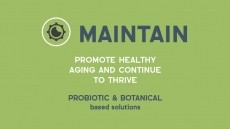Low magnesium linked to increased DNA damage in healthy adults

Although magnesium deficiency has previously been associated with susceptibility to the onset of a range of diseases, researchers affiliated with the University of South Australia and the Genome Health Foundation reported as novel their finding correlating magnesium intake with genomic integrity.
“The results obtained in the present study indicate for the first time that low in vivo levels of magnesium either on its own or in the presence of high homocysteine (Hcy) increases DNA damage as evident by higher frequencies of micronuclei (MN) and nucleoplasmic bridges (NPBs),” they wrote.
Magnesium and homocysteine
As the fourth most abundant mineral present in human body, magnesium is involved as a cofactor in major metabolic and biochemical pathways within the cell.
“It is associated with various functions within the body such as strengthening and development of bones, nerve function, regulating blood sugar and blood pressure, protein metabolism, nucleic acid stability (DNA and RNA) and cell proliferation,” the researchers wrote.
In a previous study, members of the research team reported strong associations between elevated homocysteine and low magnesium levels in healthy older adults evaluated for sleep disruption and telomere loss. They also referenced findings that a combination of magnesium sulfate and hypertension drug phentolamine were more effective than magnesium sulfate alone in a group of hypertense pregnant women.
This, they noted, suggests that higher magnesium levels in blood may protect the human genome from toxicity caused by amino acid homocysteine, which is increased when folate and vitamin B12 are deficient.
Study details
The study recruited 172 healthy middle-aged adults between the ages of 35 and 65 from South Australia and measured blood levels of magnesium, homocysteine, folate and vitamin B12, as well as biomarkers of DNA damage—micronuclei, nucleoplasmic bridges and nuclear buds.
Magnesium and homocysteine were found to be marginally higher in male participants than in female participants, and folate and B12 were marginally lower in males. In terms of the DNA damage biomarkers, micronuclei frequency was significantly higher in females compared to males, but nucleoplasmic bridges and nuclear buds were found to be marginally lower in males than in females.
“In conclusion, the results obtained from our study indicate that optimal intake of micronutrients such as magnesium and B vitamins that can lower Hcy concentration is essential for maintaining genome integrity for healthy aging,” the researchers wrote. “Also, more research is required to determine the optimal dietary intake of magnesium to achieve consistently adequate cellular concentration of magnesium for maintenance of genomic integrity.”
They added that magnesium dietary requirement may need to consider the homocysteine status of the subjects and that future placebo-controlled studies should consider whether different forms of magnesium (e.g. magnesium citrate or magnesium sulphate) can reduce MN and NPBs.
Source: European Journal of Nutrition
doi: 10.1007/s00394-024-03449-0
“Low magnesium in conjunction with high homocysteine increases DNA damage in healthy middle-aged Australians”
Authors: Varinderpal S. Dhillon et al.













